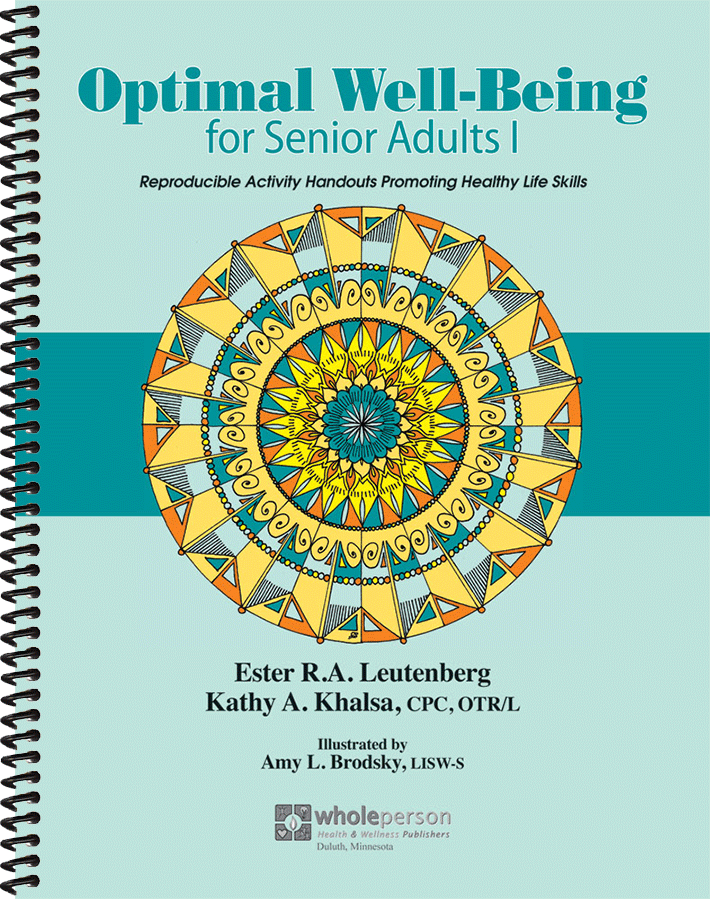Reproducible mental health and life skills activities for senior adults
Optimal Well-Being for Senior Adults I is the first in a series of workbooks consisting of reproducible activity handouts written for mental health professionals to provide guidance and content as they work with the changing mental health and aging needs of senior adults. The activities in the workbook are clear, easy-to-follow handouts that cover a wide range of senior adult mental health and life skills issues.
The activities, exercises, and handouts in this workbook are perfect for those working on mental health issues with the older adult population in a variety of settings:
- Health care settings
- Assisted living facilities
- Retirement communities
- Churches
- Rehabilitation facilities
- Community continuing education classes
- University programs for seniors
The reproducible handouts can be individualized to meet the specific needs of the participants. Creativity is encouraged by both the leader and participants in an ongoing process to generate satisfying and meaningful sessions. Artwork, graphics, and other design elements offer interest and variety to enhance focus and attention to the topics.
Each handout has a Leader’s Guide to aid the facilitator.
The Leader’s Guides include the following:
- Purpose (identify the skill the participant will be learning)
- Background Information (can be used as a brief introduction for the session)
- Activity (provides a step-by-step outline for how to lead a session)
- Variations (describes at least one variation from the outlined activity)
Each of the ten chapters has five handouts with three levels of understanding. This format encourages the facilitator to choose which level is most appropriate for the specific individuals to avoid the frustration of the facilitator and group members.
The workbook is divided into ten topics which include:
Topic I – Anxiety and Stress
Topic II – Coping
Topic III – Emotion Expression
Topic IV – Grief and Loss
Topic V – Life Balance
Topic VI – Reminiscence
Topic VII – Self-Awareness
Topic VIII – Social Skills
Topic IX – Staying Young at Heart
Topic X – Thinking Skills
Optimal Well-Being PDF eBook
This workbook is also available in PDF eBook format, making it simple to store on your computer or mobile device and access with a PDF viewer. The PDF format allows you to easily print copies of the activities and worksheets during therapy and counseling sessions.
 Optimal Well-Being for Senior Adults I Card Deck
Optimal Well-Being for Senior Adults I Card Deck
Use the open-ended, discussion starter questions to jump start a group or individual session. Each question corresponds to a page in the workbook.
Sample Questions:
Where do you feel stress in your body? What does it feel like?
Grief is frequently described as a “broken heart.” Do you believe a broken heart can be mended? Explain.
How can you work on your memory skills on a daily basis?



